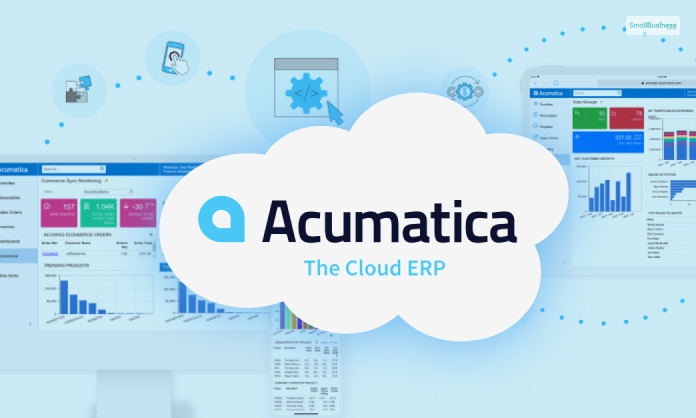Archiving tends to be a dreaded task for many, despite our efforts to stay organized. Yet, when it comes to communication, overlooking archiving can lead to critical gaps in record-keeping.
Effective archiving is not merely about managing storage space; it’s about ensuring that communication is captured, secured, and stored in a compliant manner.
Traditionally, archiving involved manual processes, like filing paper documents. However, in today’s digital landscape, the variety of communication tools — from email to instant messaging — makes manual archiving inefficient and prone to errors.
The Need for Automation

The sheer volume and diversity of communication data continue to grow, making manual archiving overwhelming. Employees struggle to keep up with evolving regulations and often lack the training to manage data effectively. This results in delayed, incomplete, or inaccurate responses to requests for information.
Additionally, data retention and privacy requirements are becoming increasingly complex. Organizations must document communication to demonstrate compliance with regulatory standards.
However, determining what data to retain and for how long poses challenges, especially when relying on manual processes.
- Time-Consuming Process: Sorting through vast amounts of communication records, determining what to save, where to store it, and when to archive it can consume significant time, affecting productivity and diverting attention from essential tasks.
- Growing Communication Data: The proliferation of communication channels exacerbates the challenge of managing data manually, increasing the risk of oversight and non-compliance with regulatory requirements.
- Complex Retention Policies: Understanding and adhering to evolving retention policies and regulations can be complex and labor-intensive, leading to compliance risks if not managed effectively.
- Lack of Archiving Knowledge: Not all employees possess expertise in archiving best practices, which can result in improper document handling and potential compliance issues.
- Limited Resources: Some organizations may lack the financial or personnel resources needed to support effective communication archiving, leaving employees overwhelmed and vulnerable to compliance risks.
- Oversight: Manual archiving processes increase the likelihood of messages being overlooked or forgotten, leading to compliance gaps and potential legal consequences.
The Solution: Automated Archiving
Automating communication archiving offers numerous benefits. It streamlines the process, reduces storage costs, and saves time for both IT and legal teams. Automated solutions capture, categorize, and secure communication records without requiring constant oversight from employees.
Streamlined Processes
Automated archiving doesn’t just simplify tasks; it revolutionizes them. Automatically capturing, sorting, and storing communication data transforms what was once a time-consuming chore into a seamless, efficient process.
Employees are liberated from the monotonous task of manually managing archives, allowing them to redirect their efforts toward more strategic and revenue-generating activities.
Automation also minimizes the likelihood of human errors, ensuring that archived data is accurate and complete. Consistency in archiving practices is also guaranteed, reducing the risk of discrepancies and enhancing overall data integrity.
Comprehensive Data Preservation
Communication today occurs across diverse channels, from email and instant messaging to social media and voice calls. Specialized archiving solutions, including email archiving solutions, cater to this complexity, ensuring that no communication slips through the cracks.
Automating the archiving process allows organizations to consolidate data from various sources into a centralized repository, simplifying retrieval and ensuring comprehensive data preservation.
A comprehensive data preservation strategy not only mitigates the risk of data loss but also facilitates compliance with regulatory mandates regarding data retention and disclosure.
Customizable Retention Policies
Every organization operates within a unique regulatory landscape, with specific requirements governing data retention and disposal. Automated archiving solutions offer the flexibility to tailor retention policies according to these regulations and organizational needs.
Whether it’s retaining customer communications for a specified duration or purging outdated internal messages, automation ensures that retention policies are consistently applied and enforced.
Once manual oversight is eliminated, organizations can minimize the risk of non-compliance and associated penalties while streamlining compliance efforts.
Knowledge Standardization
Inconsistencies in archiving practices can pose significant risks, particularly in highly regulated industries where compliance is paramount. Automated archiving processes standardize these practices, reducing reliance on individual knowledge and expertise.
Regardless of employee turnover or organizational changes, the archiving system remains steadfast, ensuring consistent adherence to regulations and minimizing errors.
Moreover, automation facilitates knowledge transfer and training, as employees no longer need to navigate complex archiving procedures independently.
Long-Term Cost Savings
While the initial investment in automated archiving solutions may seem substantial, the long-term benefits far outweigh the costs.
Automation delivers significant cost savings over time by saving time, mitigating risks, and enhancing productivity. Employees can devote their valuable time and energy to revenue-generating activities, driving business growth and competitiveness.
Furthermore, by optimizing resource allocation and reducing reliance on manual labor, organizations can achieve greater operational efficiency and scalability, positioning themselves for sustained success in a dynamic marketplace.
Consistent Archiving
Manual archiving processes are inherently prone to oversight and inconsistencies. Automated archiving eliminates these vulnerabilities by enforcing predefined schedules and protocols.
Whether it’s archiving communications in real time or scheduling periodic backups, automation ensures that no data is overlooked or neglected. This not only enhances regulatory compliance but also bolsters data security and auditability.

Conclusion
As communication volumes are growing and regulatory requirements are becoming increasingly stringent, the automation of communication archiving processes offers a viable solution to the challenges faced by organizations.
Streamlining archiving processes, automating retention policies, and standardizing practices help organizations enhance compliance, improve productivity, and mitigate risks associated with manual archiving methods.
Embracing automation is not merely a technological upgrade but a strategic imperative for organizations seeking to adapt to the demands of the digital age while ensuring the integrity and security of their communication data.
Read Also:




Leave A Comment